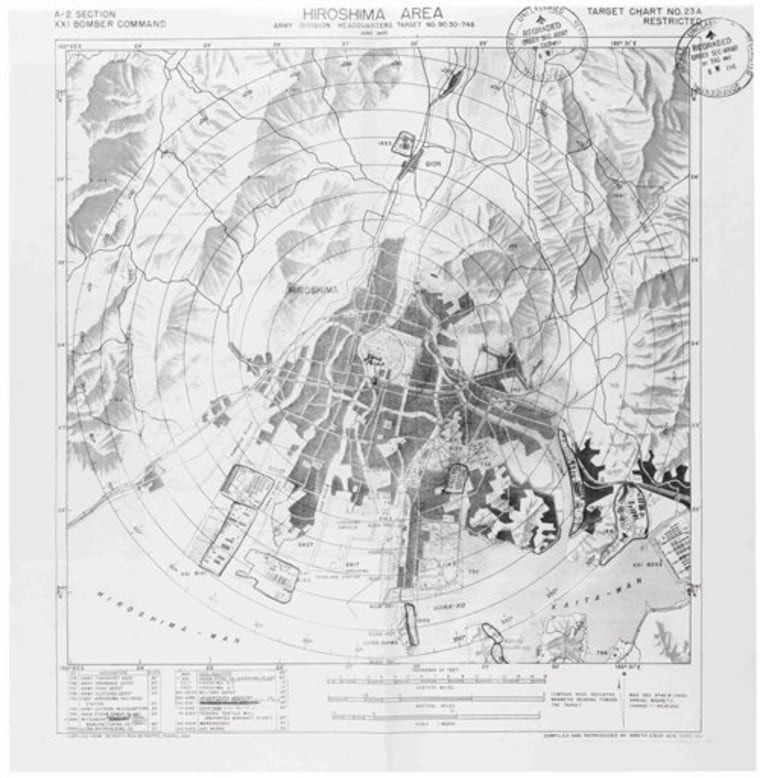An audit prompted in part by the loss of the Wright Brothers' original patent and maps for atomic bomb missions in Japan finds some of the nation's prized historical documents are in danger of being lost for good.
Nearly 80 percent of U.S. government agencies are at risk of illegally destroying public records and the National Archives is backlogged with hefty volumes of records needing preservation care, the audit by the Government Accountability Office found.
The report by the watchdog arm of Congress, completed this month after a year's work and obtained by The Associated Press, also found many U.S. agencies do not follow proper procedures for disposing of public records.
Officials at the National Archives, which houses the Declaration of Independence, the U.S. Constitution and other treasured documents at its Washington rotunda, had no immediate comment Tuesday on the findings.
The report comes more than a year after news reports of key items missing at the nation's record-keeping agency. Some of the items have been missing for decades but their absence only became widely known in recent years.
The patent file for the Wright Brothers flying machine was last seen in 1980 after passing around multiple Archives offices, the Patents and Trademarks Office and the National Air and Space Museum.
As for maps for the bombs dropped on Hiroshima and Nagasaki, military representatives checked them out in 1962, and they've been missing ever since.
The GAO report did not specifically mention those or other examples of missing items including Civil War telegrams from Abraham Lincoln, Eli Whitney's cotton gin patent and some NASA photographs on the moon.
A second GAO report obtained by the AP details "significant weaknesses" in the Archives' security. The Oct. 21 report refers to a lost computer hard drive from the Clinton administration and highlights problems with the Archives' computer access controls, clearance requirements for employees and physical security. A third report not yet released is expected to detail 213 recommendations to improve Archives' security, the GAO said.
The risks highlighted by the GAO could affect volumes of mundane legal memos but also key pieces of history.
Sen. Charles Grassley of Iowa requested the audits last year, alarmed at the "apparent lack of effective security." He noted the loss of the Wright Brothers' patent, the Clinton administration computer data with classified information and lost maps from World War II.
"This agency is the country's record keeper," Grassley said in a statement Tuesday. "It's responsible for protecting classified materials and for preserving our most important historical documents. ... The agency needs to commit to fixing its problems and follow through."
The Archives acting alone "cannot solve the persistent problems facing federal records management," the report said, because each agency is responsible for preserving documents.
But the Archives can improve its oversight, the GAO wrote, by pressing for improvement in government-wide records management.
Each agency is supposed to either seek permission to destroy records or recommend preservation at the Archives. An archivist reviews agency submissions, which must include clear descriptions of the records involved, in a four-step process. Archivists often review the records themselves. Proposals to dispose of records must be published in the Federal Register and undergo a 30-day comment period.
The entire process can take a year, but some agencies never begin the process, leaving their records at risk of being lost in the shuffle. As the Archives works to get more agencies to comply, it may not be able to handle the workload, the GAO warned.
The National Archives and Records Administration has 44 facilities in 20 states, including 13 presidential libraries, funded by about $470 million this year from Congress.
Archives Inspector General Paul Brachfeld said Tuesday that the reports build from his investigations in recent years.
The worst threat to historical documents is theft, he said.
"We continue to be victimized by people that understand there's money to be had by trading our documents," Brachfeld said. "They're taking from every American citizen."
Meanwhile, some documents face the threat of deterioration even though they're already at the Archives. Figures from 2009 show 65 percent of its holdings need preservation steps. In some cases, a document's condition already is so poor, it can't be read — a backlog amounting to more than 2 million cubic feet of records.
Brachfeld said new leaders at the Archives understand the problems and are making changes.
The GAO recommends the Archives boost its inspections of agencies, improve internal management, streamline hiring and enhance security.
